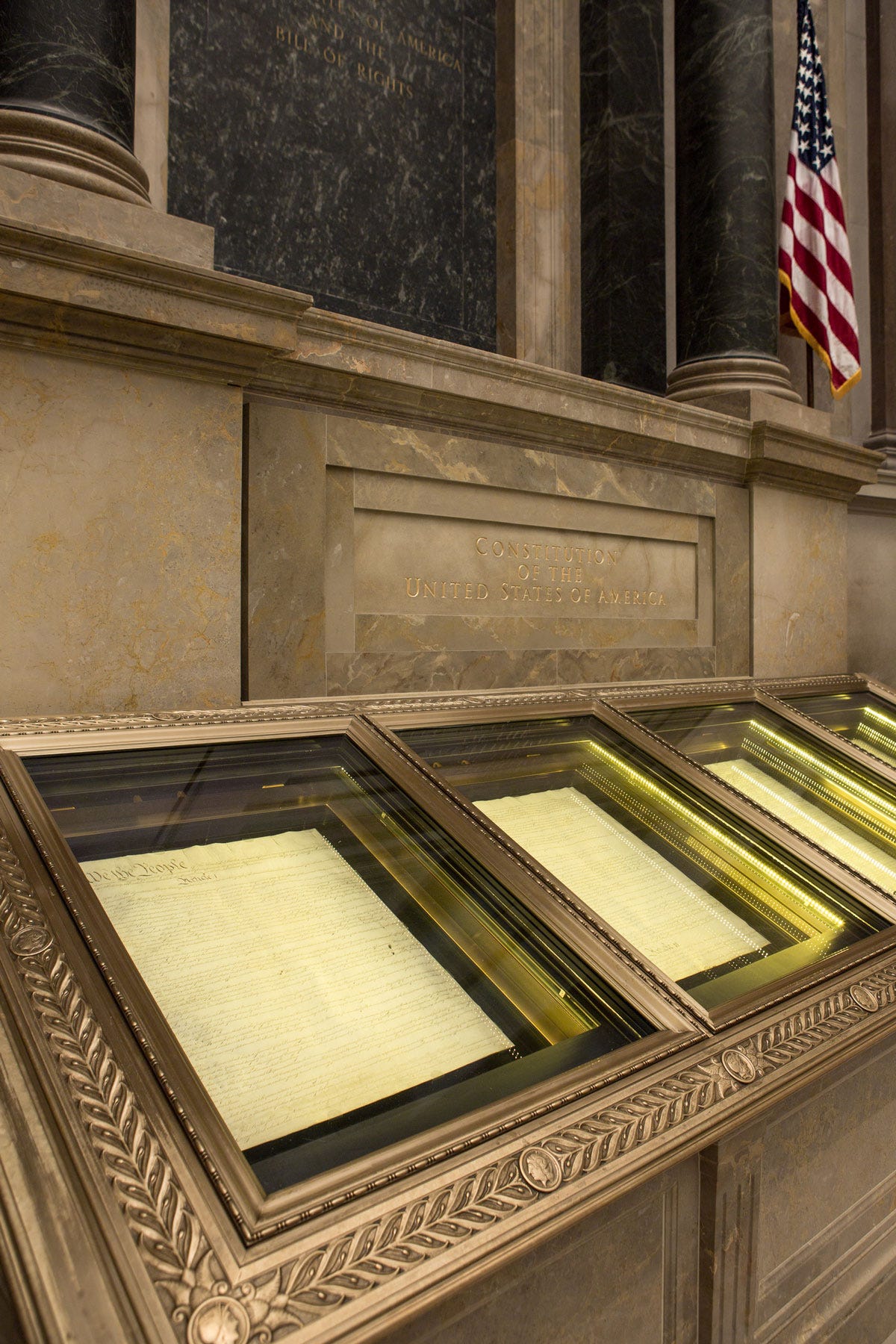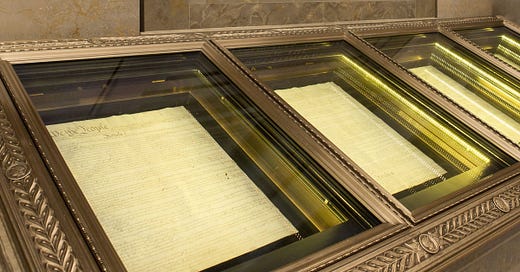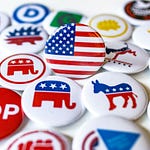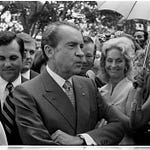
We can debate whether we call ourselves a democracy, a republic, or a democratic republic. We can debate Social Security, wages, housing programs, small business taxes, our energy grid, border security, and whether to support military programs.
But we can’t debate that the foundational premise of America is individual liberty. From liberty comes personal responsibility. And if you have a right to individual liberty, so does everyone else. Even when we disagree with how others express that right.
Human nature is not a machine to be built after a model, and set to do exactly the work prescribed for it, but a tree, which requires to grow and develop itself on all sides, according to the tendency of the inward forces which make it a living thing. -- John Stuart Mill, On Liberty
John Stuart Mill (1806-1873) was a philosopher and economist known for his writings on logic, economics, and ethics. He is regarded as “the most influential English language philosopher of the nineteenth century.” His philosophical work laid the groundwork for the way we now think about personal freedom and liberty.
Mill wrote several journals on topics ranging from the scientific method to happiness and reality. But his most compelling philosophical thinking concerned the contradiction between individual liberty and the good of society, for which he used the term utilitarianism.
His essay On Liberty is a cornerstone of liberal thought. It advocates for individual autonomy free from societal and governmental intrusion, except in cases where an individual’s choice harms others. Mill's ideas on freedom of expression, such as freedom of speech, equality, and moral progress, continue to influence contemporary discussions on civil rights and public policy.
Two years after publishing On Liberty, he wrote Utilitarianism. Utilitarianism suggests that the best action for society is the one that maximizes utility, generally defined as that which produces the greatest well-being for the greatest number of people.
The tension between individual liberty and utilitarianism is a notable philosophical challenge.
Proponents of liberty consider personal freedom to be sacred. For example, Patrick Henry's famous 1775 speech was part of a debate on whether America should seek peace with Britain or pursue independence from British tyranny. His speech ended with the memorable words, "Give me Liberty, or give me death!"
On the other hand, proponents of utilitarianism believe that we have an ethical and moral responsibility to pursue the greatest good for society. According to utilitarian principles, if an action can improve the happiness of the majority, it should be pursued. This can clash with the principle of protecting individual liberty, especially when the majority's pursuit of the greater good infringes on the liberty of individuals.
Mill’s notable contribution wasn’t the two philosophical theories alone. Patrick Henry made his fiery statement before Mill was born, and Jean-Jacque Rousseau championed the concept of the greater good a century before Mill.
Mill’s significant contribution was resolving and connecting the two philosophical theories. He argued that protecting individual liberty leads to the best outcomes for society as a whole. Expressing individual liberty promotes intellectual and moral developments that won’t happen if individuals don’t have the freedom of action to make those decisions. From individual liberty, one derives personal responsibility.
Let’s follow Mill’s line of reasoning from Chapter 3 of On Liberty. If we let society or our environment dictate our life choices, we're just mimicking others and not really thinking for ourselves.
When we choose our own path, we engage ourselves. We observe, plan, and make decisions. We develop skills and talents to the extent that we rely on our own logic and intuition.
What we do isn’t the only thing that matters; it's what kind of person we become by doing it. By choosing our own path, we utilize our intellectual and emotional capacity and shape our character and identity at the same time.
This autonomy fosters critical thinking and decision-making skills. Conforming to societal expectations stifles personal growth and reduces our contributions to society.
In short, a life led by individual liberty cultivates effective, wise, and morally sound individuals.
Then, in Chapter 4, Mill drops the hammer. He asks: what is the rightful limit to an individual's sovereignty over themselves, and where does society's authority begin?
He discusses a logic sequence invoking a philosophy similar to the American Western principle, “Ride for the Brand.” Society isn’t based on a formal contract, but living in society requires each person to follow certain rules toward others. If an individual shows insufficient consideration for others without violating any constituted rights, the offender may then be justly punished by public opinion, though not by law. Therefore, an individual should be free to act and face the consequences.
If we are free to act and face the consequences, then no one has the right to tell another that they can’t do what they choose with their life. Each person is most interested in their well-being, and our direct interest in others is trivial in comparison.
If others have little direct interest in our choices, then public opinion on individual conduct is as likely to be wrong as right since it reflects some people's opinions on what they think is good or bad for others. Many people see conduct they dislike as an injury to themselves and resent it, as a bigot may resent others' beliefs. Moralists teach that their conduct is right because they feel it to be so, applying personal feelings as moral laws. This approach leads the public to enforce personal preferences as societal norms, ignoring individual freedom.
Therefore, public interference in personal conduct denies others individual freedom. It stifles liberty and self-determination. Society's role should be limited to preventing harm to others, not imposing conformity to its preferences. Respect for individual liberty is essential for a just and progressive society.
So, according to Mill, we cannot have personal responsibility without liberty. If we take away liberty, we lose accountability and responsibility in society. Therefore, government and society have a duty to ensure individual liberty as the basis for humanity.
American presidents support Mill’s philosophy. Here are some quotes…
If we love our country, we should also love our countrymen.
Protecting the rights of even the least individual among us is basically the only excuse the government has for even existing.
It is time to restore the American precept that every individual is accountable for his actions.
Government's first duty is to protect the people, not run their lives.
Government exists to protect us from each other. Where government has gone beyond its limits is in deciding to protect us from ourselves.
There are no constraints on the human mind, no walls around the human spirit, no barriers to our progress except those we ourselves erect.
Okay, so that’s all one president, namely our 40th President, Ronald Reagan. If John Stuart Mill was the preeminent liberal thinker of the 19th Century, Reagan sounds pretty liberal to me. Of course, we misuse the term. All Americans are liberals.
Reagan sounds like a liberal because he sought to conserve the American democratic republic, which is based on Enlightenment liberalism. Conserving the liberal democratic republic makes you a liberal.
We need to restore conservatives to align with the American institution again.
Give me liberty or give me death means “Give us all liberty!” All Americans have the God-given right to liberty.
Liberty is the right to make decisions about our own property, including our bodies. This means the right for adults to make decisions for themselves and their children about their healthcare. Even when other people disagree with those choices. Applying personal morals to dictate someone else’s choices violates our right to individual liberty.
Liberty is the right to speak and expose ourselves and our children to ideas. Many of these ideas are found in books. If you don’t want your children exposed to these ideas in schools, you have a right to homeschool your child. Applying our personal beliefs to governance violates the individual liberty of others.
Liberty is your right to burn my flag. I find this act personally detestable. If I told you I didn’t support your right to burn my flag, wouldn’t that be telling you I thought you didn’t deserve your right to individual liberty?
Liberty is freedom of religion. Liberty is freedom from religion.
Liberty is our elected leaders adhering to Article IV, Section 4 of the US Constitution, which states that “The United States shall guarantee to every State in this Union a Republican Form of Government, and shall protect each of them…against domestic Violence.” Attempting to nullify votes from states in the Union and then attempting a violent overthrow of the proceedings at the US Capitol violates individual liberty. We are the United States because the citizens of each state agreed to form the union. A part of that agreement was that each state would have the right for their vote to be counted. Refusing to recognize the vote from states and refusing to transfer power peacefully directly leads to domestic violence and violates individual liberty.
I call on conservatives to realign themselves, ourselves, with the foundational premise of America. The Almighty gave us all our right to life and liberty, and inherent in that gift is our right to make decisions to benefit ourselves, free from the rules of others in society or government.
We can debate whether we call ourselves a democracy, a republic, or a democratic republic. We can debate Social Security, wages, housing programs, small business taxes, our energy grid, border security, and whether to support military programs.
But we can’t debate that the foundational premise of America is individual liberty. From liberty comes personal responsibility. And if you have a right to individual liberty, so does everyone else. Even when we disagree with how others express that right.
May God bless the United States of America.














Share this post